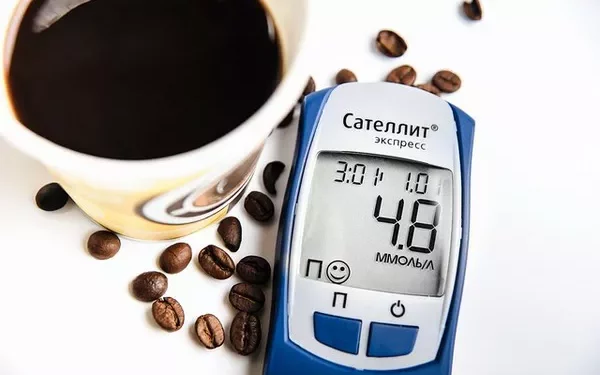Nocturnal hypoglycemia, or low blood sugar that occurs during the night, is a significant concern for individuals with diabetes, especially those using insulin or certain oral hypoglycemic agents. While hypoglycemia is generally recognized as a daytime issue, nighttime episodes can be particularly dangerous due to their potential to go unnoticed and the risk of severe outcomes, including unconsciousness. Effective prevention strategies are crucial for managing nocturnal hypoglycemia and ensuring overall well-being.
This article will explore the causes of nocturnal hypoglycemia, risk factors, and a comprehensive range of strategies to prevent and manage this condition effectively.
Understanding Nocturnal Hypoglycemia
Nocturnal hypoglycemia refers to a drop in blood glucose levels that occurs during sleep. It can lead to symptoms such as sweating, nightmares, confusion, and in severe cases, loss of consciousness. The underlying mechanisms of nocturnal hypoglycemia are multifaceted and include:
Inappropriate Insulin Dosing: Overuse or miscalculation of insulin doses can lead to hypoglycemia, particularly if insulin action continues overnight.
Imbalanced Meal Timing: Inadequate carbohydrate intake or skipping meals can contribute to low blood sugar levels during the night.
Increased Insulin Sensitivity: Insulin sensitivity may be heightened at night due to various factors, including changes in metabolism and physical activity.
Alcohol Consumption: Alcohol can cause delayed hypoglycemia, making it difficult to predict and prevent low blood sugar during sleep.
Glycemic Variability: Fluctuations in blood glucose levels, often due to inconsistent eating habits or medication adjustments, can lead to nocturnal hypoglycemia.
Causes and Risk Factors
Insulin Overdose
Taking too much insulin or having an insulin peak during the night can lead to low blood sugar. This is particularly relevant for those on intensive insulin therapy or using long-acting insulin.
Mechanisms:
Delayed Insulin Action: Some insulin types have prolonged effects, leading to hypoglycemia if the dose is too high.
Insulin Sensitivity Variability: Insulin sensitivity can vary throughout the day, and higher sensitivity during the night can exacerbate the risk of nocturnal hypoglycemia.
Inadequate Carbohydrate Intake
Not consuming enough carbohydrates, especially before bedtime, can result in insufficient glucose availability during the night.
Mechanisms:
Postprandial Glucose Decline: Insufficient evening carbohydrates can lead to a rapid decline in blood glucose levels as the night progresses.
Prolonged Fasting: Extended periods without food can deplete glycogen stores and increase the risk of nocturnal hypoglycemia.
Alcohol Consumption
Alcohol can interfere with glucose production and insulin action, leading to delayed hypoglycemia.
Mechanisms:
Gluconeogenesis Suppression: Alcohol inhibits gluconeogenesis, the liver’s process of producing glucose from non-carbohydrate sources.
Unpredictable Blood Sugar Effects: The effects of alcohol on blood glucose levels can be unpredictable, increasing the risk of hypoglycemia during the night.
Increased Insulin Sensitivity
Changes in insulin sensitivity due to various factors can impact nighttime blood glucose levels.
Mechanisms:
Circadian Rhythms: Insulin sensitivity may be higher at night, increasing the risk of hypoglycemia if insulin doses are not adjusted accordingly.
Physical Activity: Increased physical activity during the day can enhance insulin sensitivity and impact nighttime glucose levels.
Glycemic Variability
Fluctuations in blood glucose levels, often due to inconsistent eating or medication regimens, can increase the risk of nocturnal hypoglycemia.
Mechanisms:
Inconsistent Eating Patterns: Irregular eating habits can lead to unpredictable blood glucose levels and increased risk of hypoglycemia.
Medication Adjustments: Changes in medication regimens or dosages can affect blood glucose control and increase the risk of nocturnal hypoglycemia.
Prevention Strategies
Optimizing Insulin Regimens
Adjusting insulin doses and timing can help prevent nocturnal hypoglycemia.
Strategies:
Review Insulin Doses: Regularly review and adjust insulin doses with a healthcare provider based on blood glucose patterns and individual needs.
Consider Basal Insulin Adjustments: Adjusting the dose or timing of basal insulin (long-acting insulin) may help prevent nighttime hypoglycemia.
Use Insulin Pumps: Insulin pumps can provide continuous insulin delivery and allow for more precise control of insulin doses, reducing the risk of hypoglycemia.
Monitoring Blood Glucose Levels
Frequent monitoring of blood glucose levels can help detect and prevent nocturnal hypoglycemia.
Strategies:
Pre-Sleep Blood Glucose Testing: Measure blood glucose levels before going to bed to ensure they are within a target range.
Continuous Glucose Monitoring (CGM): Use CGM devices to monitor glucose levels throughout the night and receive alerts for low glucose levels.
Adjust Monitoring Frequency: Increase monitoring frequency if experiencing unexplained nighttime hypoglycemia or making changes to insulin regimens.
Managing Carbohydrate Intake
Proper carbohydrate management can help prevent nocturnal hypoglycemia.
Strategies:
Pre-Bedtime Snack: Consume a balanced snack before bed that includes carbohydrates and protein to provide sustained glucose levels throughout the night.
Monitor Carbohydrate Intake: Track and manage carbohydrate intake to ensure adequate glucose availability, especially in the evening.
Use Slow-Digesting Carbohydrates: Choose snacks with slow-digesting carbohydrates, such as whole grains or legumes, to provide a steady release of glucose.
Alcohol Consumption
Managing alcohol intake can help prevent nocturnal hypoglycemia.
Strategies:
Limit Alcohol Consumption: Consume alcohol in moderation and avoid drinking close to bedtime.
Monitor Blood Glucose Levels: Check blood glucose levels before and after drinking alcohol to assess its impact.
Eat with Alcohol: Consume food along with alcohol to help stabilize blood glucose levels.
Adjusting Medications
Medication adjustments may be necessary to prevent nocturnal hypoglycemia.
Strategies:
Review Medications: Regularly review medications with a healthcare provider to ensure appropriate dosing and timing.
Consider Alternative Medications: Explore alternative medications or formulations that may have a lower risk of causing nocturnal hypoglycemia.
Use Medications with a Lower Risk: Consider medications with a lower risk of causing low blood sugar, such as those with extended-release formulations.
Lifestyle Modifications
Implementing lifestyle changes can support overall glucose management and reduce the risk of nocturnal hypoglycemia.
Strategies:
Maintain a Consistent Routine: Establish a consistent routine for eating, sleeping, and physical activity to support stable blood glucose levels.
Stay Active: Engage in regular physical activity to improve insulin sensitivity and overall glucose control.
Manage Stress: Practice stress management techniques, such as relaxation exercises and mindfulness, to reduce the impact of stress on glucose levels.
Education and Support
Education and support are essential for preventing and managing nocturnal hypoglycemia.
Strategies:
Educate Patients: Provide education on the signs and symptoms of hypoglycemia, prevention strategies, and appropriate response measures.
Involve Caregivers: Educate caregivers and family members about nocturnal hypoglycemia and how to respond in case of an emergency.
Utilize Support Resources: Utilize support resources, such as diabetes education programs and support groups, to enhance knowledge and management skills.
Emergency Preparedness
Recognizing Symptoms
Recognizing the symptoms of nocturnal hypoglycemia is crucial for timely intervention.
Symptoms:
Sweating: Excessive sweating during the night.
Nightmares or Restlessness: Experiencing disturbing dreams or restless sleep.
Confusion or Irritability: Sudden confusion or irritability upon waking.
Unresponsiveness: Difficulty waking up or responding to stimuli.
Immediate Action
Taking immediate action in response to symptoms of nocturnal hypoglycemia is essential for preventing severe outcomes.
Actions:
Administer Glucose: If symptoms are recognized, administer glucose in the form of tablets, gel, or a sugary beverage.
Seek Medical Help: If the individual does not respond to glucose or becomes unresponsive, seek emergency medical help immediately.
Use Glucagon: In severe cases, glucagon injection may be necessary to raise blood glucose levels.
Preventative Measures
Implementing preventative measures can help reduce the risk of nocturnal hypoglycemia.
Measures:
Adjust Insulin Doses: Review and adjust insulin doses based on blood glucose patterns and individual needs.
Monitor Blood Glucose: Regularly monitor blood glucose levels and adjust management strategies as needed.
Educate on Prevention: Educate individuals and caregivers about prevention strategies and emergency response measures.
See also: Why Do You Get Hypoglycemia with Liver Failure?
Conclusion
Preventing nocturnal hypoglycemia requires a multifaceted approach that includes optimizing insulin regimens, monitoring blood glucose levels, managing carbohydrate intake, controlling alcohol consumption, adjusting medications, and implementing lifestyle modifications. By understanding the causes and risk factors of nocturnal hypoglycemia and utilizing effective prevention strategies, individuals with diabetes can reduce the risk of nighttime low blood sugar and improve their overall health and well-being. Regular communication with healthcare providers and ongoing education and support are essential for managing this condition effectively.
Related topics:


























